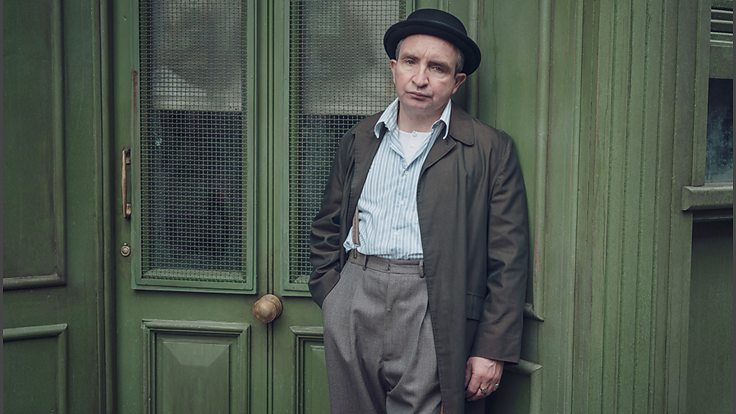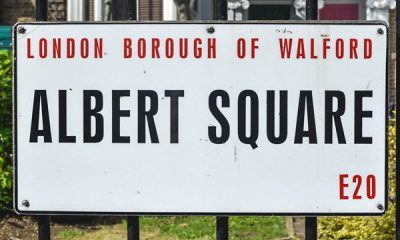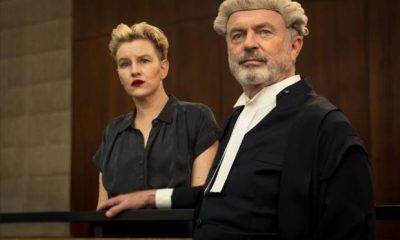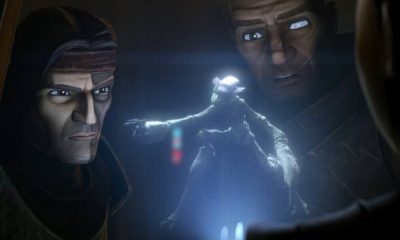Interviews
Ridley Road | Interview with Eddie Marsan (Soly Malinovsky)

You play Soly Malinovsky, the leader of the 62 Group – how would you describe him?
Brave, principled, reckless, terrible short temper, but his heart is in the right place. He’s not very articulate and he’s not well educated. He’s more of a street fighter than an academic.
What drew you to taking this role?
What drew me to taking the role was Sarah Solemani. She was somebody that I met when I was filming in LA. We have a mutual friend that introduced us. Sarah contacted me and said that she wrote the part of Soly with me in mind and asked if I would do it. I was involved in the People’s Vote Campaign in Britain to have a second EU referendum and being involved in that, I got to know a Jewish female MP, who became a friend of mine, and I became more aware of the anti-Semitism that she was suffering and the anti-Semitism that was coming to the fore in the UK. We used to argue against it on her social media, but I thought that there was something more constructive I could do. So, when Sarah approached me about doing this project, I thought that I always wanted to put my talent and my crafts to good use, especially fighting racism. So, I said okay, I would play the part of Soly.
Had you heard of the 62 Group before working on the show and did you do any research around them?
No, I hadn’t. My research of the 62 Group was watching a series of documentaries that production gave me to watch, and I read Sarah’s script. My father was raised on Cable Street and I come from the East End of London. So, I am very aware of the history of normal people taking on fascists in the East End of London. It’s the proudest part of our history, I think, so I was very aware of that.
Do you feel this is an important story to tell in these times?
I do feel that this is an important story to tell because anti-Semitism is a very insidious racism. It’s a racism that can easily be sold to impressionable young people as a form of egalitarianism or a form of anti-capitalism, especially on the left. Anti-Semitism exists both on the right and the left. At the moment, in the UK it comes to the fore in the left. It was described in the 19th century, by a German social democrat, as a form of socialism. Because anti-Semitism gives the myth that it’s punching up to some mythical all powerful Jewish elite that exists. So, quite often young people are taken in by anti-Semitic tropes on social media; they don’t see it as racism, they see it as anti-capitalism, and they feel more inclined to support it.
But it isn’t anti-capitalism, it’s socialism. This German social democrat, August Babel, I think, he described it as a form of socialism. Basically, anti-Semitism is the clearest indication of populism in the left. Islamophobia and xenophobia and many forms of racism are clear indications of populism on the right. But anti-Semitism is the clearest indication of binary populism on the left.
What did you feel about Sarah’s writing when you first read the script?
The story inspired me, the part of Soly inspired me. The way it showed working class Jewish people taking a stand. I mean it was only twenty years after the end of World War II. These characters have uncles, aunts and parents that died in the Holocaust. So, they’re also dealing with generational trauma. I found the story inspirational because it showed that if ordinary people take a stand against racism, then they can make a difference.
How have you found working with newcomer Agnes O’Casey?
She’s lovely. She’s a wonderful actress, very focused on what she’s doing. I find her to be a great listener and when I’m with her I always feel like we’re listening to each other and not acting over each other. She’s very generous and a great collaborator.
Soly is quite harsh on Vivien at points, but then later shows glimmers of compassion. How does this relationship develop over the course of the series, and did you enjoy these aspects?
I think Soly is a man that can’t admit that he’s wrong. I think Soly is a traumatised individual really, but he can’t articulate the trauma that he’s gone through. So, his response is to fight back. He can never admit when he has made a mistake, and he’s very unforgiving towards those around him and he pushes those around him to fight back as much as he does. That’s what he does with Vivien. But he sees something of himself in Vivien, there’s a similarity between them that reveals itself throughout the story.
Tracy-Ann Oberman plays your on-screen wife. How have you got on with her and what is Soly and Nancy’s relationship like?
Tracy’s been my wife in a few productions. Soly and Nancy have a great relationship in the show, and we’re are very old friends, so we have a natural chemistry. We’re both experienced actors so we know exactly what we need to do. Tracy’s also a very inspirational campaigner against anti-Semitism. She’s on the frontlines and she takes incredible abuse. People hound her and she’s incredibly brave. I’m very privileged to be working with her.
What’s been your biggest challenge day to day as an actor, with the pandemic?
I think rehearsing in the mask (PPE). It’s quite hard because when you listen to people, you don’t just listen, you lip read and do a combination. And the test every two days.
Were there any memorable moments on set that you can share with us?
There’s a great speech that Soly makes to Vivien in the 62 Group’s HQ, where he talks about the need that an anti-fascist fights, that an anti-fascist does. There’s no point being non-racist or non-fascist, you have to be anti-fascist. I knew it was a beautiful speech and when we did the scene, it was with Tracy, Allan Corduner who was playing Rabbi Leslie, and to do this speech with all these Jewish actors in the room. For them to say how important that speech was for them, that was a very moving moment for me because I wanted to do a good job and I did a good job for them.












































